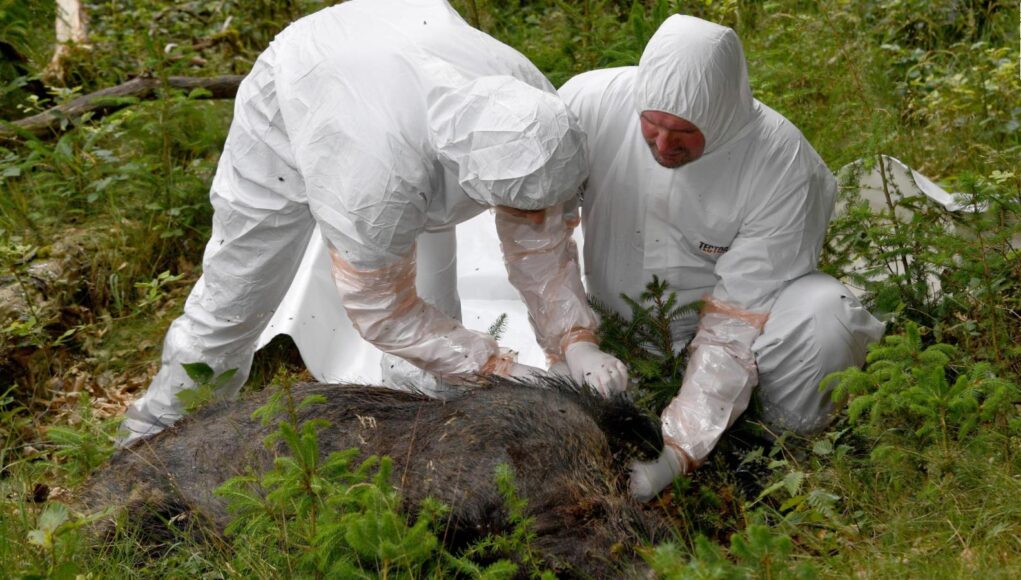The three-day initiative, which began Monday at the Cara Lodge Hotel in Georgetown, is a collaboration between the Guyana Livestock Development Authority (GLDA), the United States Department of Agriculture (USDA), and the Inter-American Institute for Cooperation on Agriculture (IICA).

The workshop, which concludes on Wednesday, April 30, aims to develop a national ASF surveillance plan and improve diagnostic sampling procedures.
Delivering the keynote address, GLDA Chief Executive Officer Dr Dwight Walrond highlighted the importance of the initiative, stressing that Guyana remains free of the disease.
“This surveillance pilot will serve as a model for proactive disease management in Guyana and the wider Caribbean,” he said.
ASF is a highly contagious viral disease affecting pigs. While it poses no risk to human health, it has had devastating consequences for pig populations in other parts of the world, threatening food security and the financial stability of farming communities.
Dr Walrond warned that the region’s proximity to Hispaniola, the island shared by Haiti and the Dominican Republic, where ASF is present, heightens the risk.

“With the continued development of Guyana’s economy, many migrants flock to our ports, official and unofficial. This by itself increases the risk posed to this nation,” he stated.
He raised concerns about the potential use of the ASF virus in acts of bioterrorism.
In response, the government has partnered with regional and international agencies to develop a multi-layered strategy focused on prevention and early detection.
This includes:
- Enhanced biosecurity on farms
- Improved checkpoints to monitor the movement of pigs and pig products
- Reinforced surveillance at ports of entry
- Strengthened laboratory testing diagnostics
Surveillance is being intensified nationwide, alongside contingency planning to ensure swift containment in the event of an outbreak.
Public education campaigns and training sessions are also being held with farmers, veterinarians and industry stakeholders.
Financial support mechanisms are explored to assist pig farmers should an ASF outbreak occur.
Dr Walrond said the initiative aligns with Guyana’s broader agricultural strategy under the 2030 Agenda for Sustainable Development.

Guyana’s pig industry comprises around 88,000 sow units. Over the past 16 months, $1.9 billion has been invested across nine of the country’s ten regions.
“With the support of the GLDA and the National Swine Farmers Association, it is envisaged to increase our national population to 500,000 sow units in the next 3 years,” Dr Walrond disclosed.
To support this growth, a modular pig slaughtering and processing facility is under construction at Garden of Eden on the East Bank Demerara. Once completed, it is expected to enhance food safety and processing capacity.
The launch included presentations from IICA’s representative Wilmot Garnett, USDA Emergency Management Director Eric Coleman, U.S. Ambassador to Guyana Nicole Theriot, and senior GLDA officials.
The second and third days of the pilot will include site visits to farms, group sessions, a visit to the Veterinary Lab, and demonstrations of sample packing procedures. (Department of Public Information)










